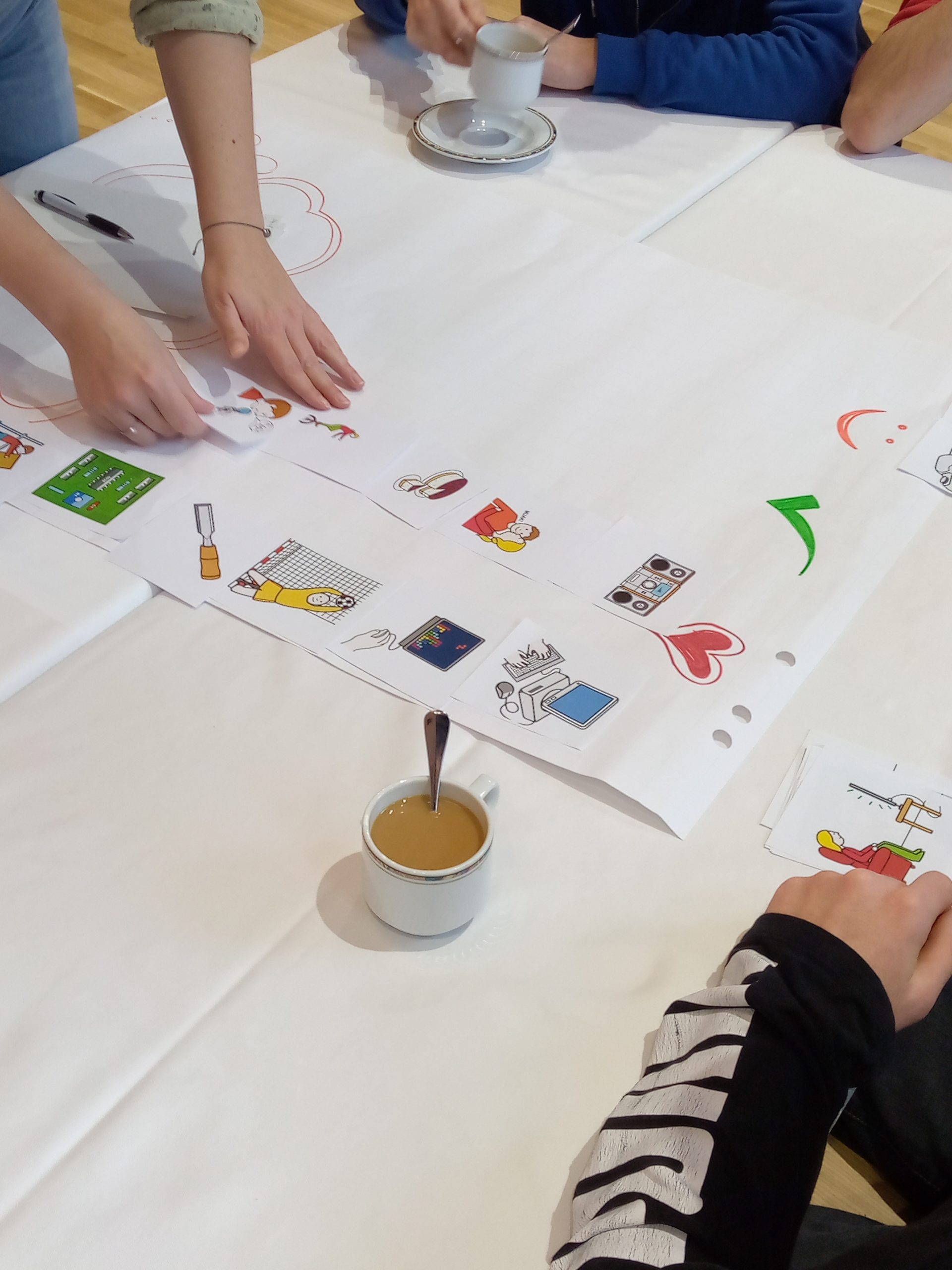The Innovation Booster Technology & Special Needs aims to support projects that provide innovative solutions for people living with a disability.
In order for the innovations developed to be adapted to the reality of people with disabilities, it is necessary that these people participate in the whole innovation process.
We therefore organise needs assessment workshops to make it easier for people with disabilities to identify and express their current needs. These workshops bring together a group of people living with a similar disability and speaking the same language.
In 2022, the Innovation Booster Technology and Special Needs organised nine needs assessment workshops in six different cantons. A total of 91 people participated in these events.
This year the focus was on mental disability on the one hand and visual disability on the other.
The aim of these workshops was to enable the persons concerned to discuss together and express their needs in relation to various topics. Through discussions, the people present were able to identify the elements that are a source of difficulties in their daily lives. Similarly, the people identified certain elements that would be necessary in order to gain autonomy and facilitate their social participation.
Mental disability
Six workshops were held on the topic of mental disability in five different institutions:
- Atelier Manus in Brig-Glis, VS
- Clair Bois in Plan-les-Ouates, GE
- Ekkharthof in Lengwil, TG
- La Castalie in Monthey, VS
- MitMänsch in Brig-Glis, VS
The central topic of these workshops was personal autonomy. The discussions were divided into several areas, of which the following are some examples:
- Garden: Having to lift heavy objects can be a problem. To counteract this, a ramp system, a sinking trailer or exoskeletons are needed.
- Health: Going to the doctor is unpleasant for some people, as they do not understand the information the doctor gives.
- Social: It can be difficult to express one’s needs or to say stop when something bothers someone.
- Room: It should be possible to control the things in a room, for example having a remote control that can open and close blinds, curtains and windows.

A written summary brings together the main elements of the discussions. The document is available below.
Download the summary of the workshops related to mental disability: EN_Synthesis_Needs_Workshops_Mental_Disability_2022
Visual disability
Three workshops were held on the topic of visual disability:
- In Lausanne, in collaboration with the Swiss Federation of the Blind and Visually Impaired
- In Bern, in collaboration with the Swiss Federation of the Blind and Visually Impaired
- In Lugano, in collaboration with Unitas
The topics of these workshops were digital accessibility, equality at work and autonomy. Here are some examples of what came out of the various discussions:
- Internet: It would be better to have an audio version of captcha (window to confirm that the person is not a robot). These tests are often visual, with a code to read or an image to identify, which makes them inaccessible.
- Administration: Tax software (e.g. VSTax in Valais) is not accessible. Blind or visually impaired people therefore have to rely on a third party to fill in the tax return which calls into question the sensitivity of the data.
- Travel: The public transport networks in each city are different, especially in terms of signage, digitisation and announcements. Standardisation would facilitate travel.
- Employment: Greater awareness of employers would be necessary, particularly to explain people’s skills.
A written summary brings together the main elements of the discussions. The document is available below.
Download the summary of the workshops related to visual impairment: EN_Synthesis_Needs_Workshop_Visual_Disability_2022
